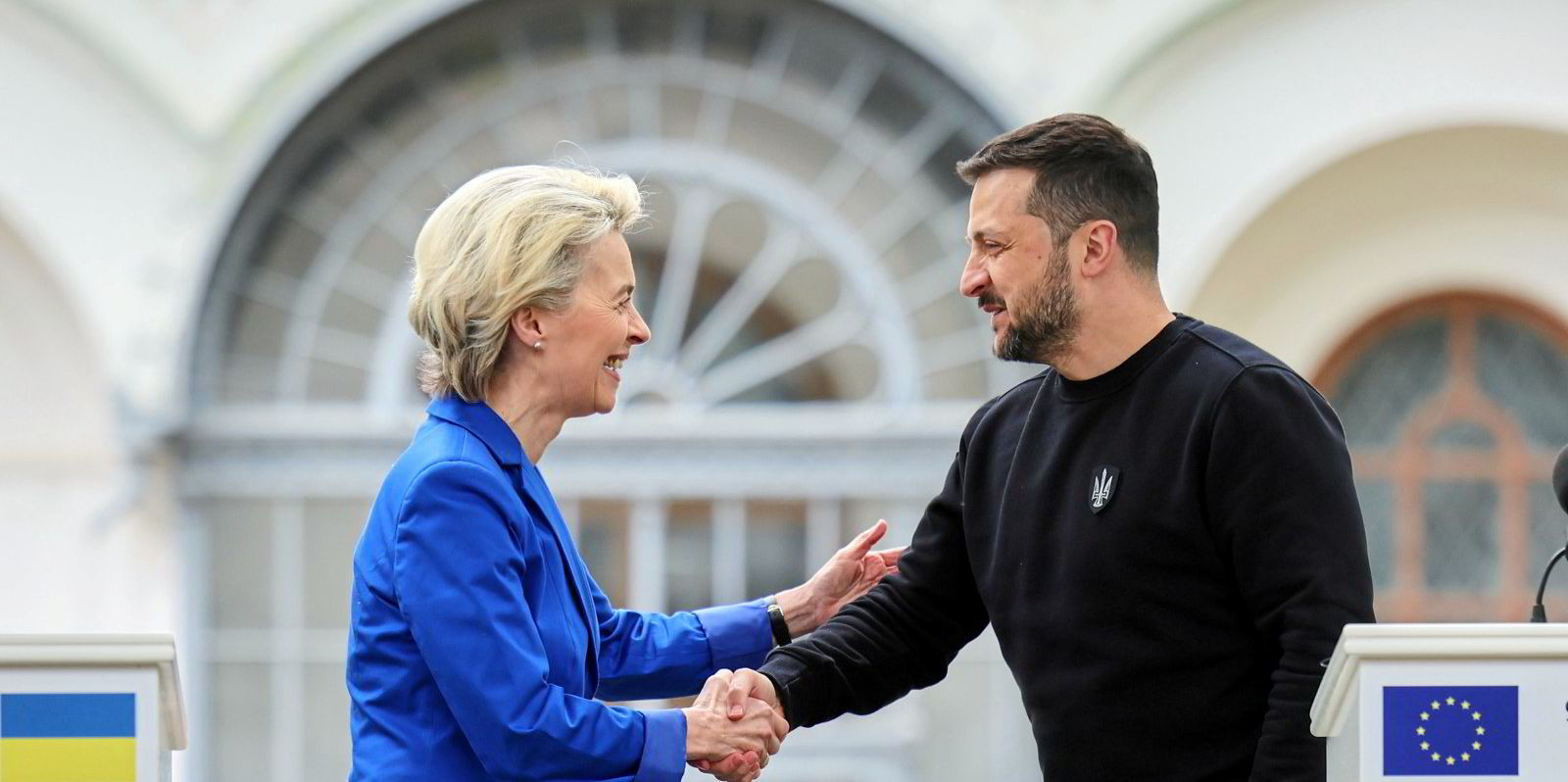The European Union will discuss targeting shipowners that sell elderly vessels into Russia’s shadow fleet for its next round of sanctions, according to the Financial Times.
Measures up for debate include tighter checks on Russia-linked vessels passing through Danish waters, the newspaper reported on Wednesday, as well as closer scrutiny of registries that provide flag services for shadow fleet vessels.
Ursula von der Leyen, the president of the European Commission, announced earlier this month that the EU’s planned 12th round of sanctions against Russia would include “actions to tighten the oil price cap”.
European policymakers have been scrabbling for solutions to limit Russian revenues since Urals crude — the main export grade — started trading above the price cap of $60 in July with sufficient non-Western tankers to maintain exports.
Sales of elderly tankers surged in 2022, driving up asset prices and netting huge profits for some owners. The boom was driven by a wave of new owners securing tonnage for Russian trades that had attracted premium rates.
Price cap strategy
US officials have claimed that a new phase of the price cap is focusing on forcing the Kremlin to spend billions on building its fleet after admitting that the breach of the price cap had affected its revenue-cutting strategy.
Russia’s oil export revenues in October were $18.3bn, down from the $19.6bn monthly average last year but significantly higher than the $15.8bn per month from 2021, according to International Energy Agency data.
Denmark would be given the task of checking tankers passing the Danish straits without Western insurance on environmental grounds, three people with knowledge of the latest EU talks told the Financial Times. It said about 60% of Russia’s total seaborne exports cross the straits.
The price cap breaches have forced Western insurers out of Russian trades, sparking concerns that alternative providers could not cover damages in the event of a serious oil spill.
Although ships cannot be halted in international waters, shipbroker BRS highlighted in January how shadow tankers could come under closer scrutiny lifting barrels from Baltic and Black Sea ports, as they would have to pass through territorial waters via the Danish or Bosphorus straits.
A 165-year convention has ruled that the straits allow for freedom of passage for all shipping. But maritime laws provide scope for action if there is a threat of coastal damage.
The last package of EU sanctions sought to tighten measures for ship-to-ship transfers of oil in the coastal waters of member states on environmental grounds.
Some measures previously reported to be discussed by European nations have failed to make it into regulations because of their practicality and disagreement between member states.
The European sanctions have previously clashed with safety issues for tankers passing through the Danish straits connecting the Baltic Sea to the North Sea through the Kattegat and Skagerrak.
A waiver was agreed in March to allow for Danish pilots to guide Russian-loaded tankers through the treacherous waters between Denmark and Sweden.
Read more
- Russian shipping costs rose after US price cap action
- Oil demand rising as US barrels flow amid volatility
- ‘Shot across the bow’ as US fires off letters to tanker players over Russia price cap
- Brazil well placed to tap into long-haul oil trade to China
- Bulgaria ‘exploits’ EU sanctions to boost Russian oil imports




